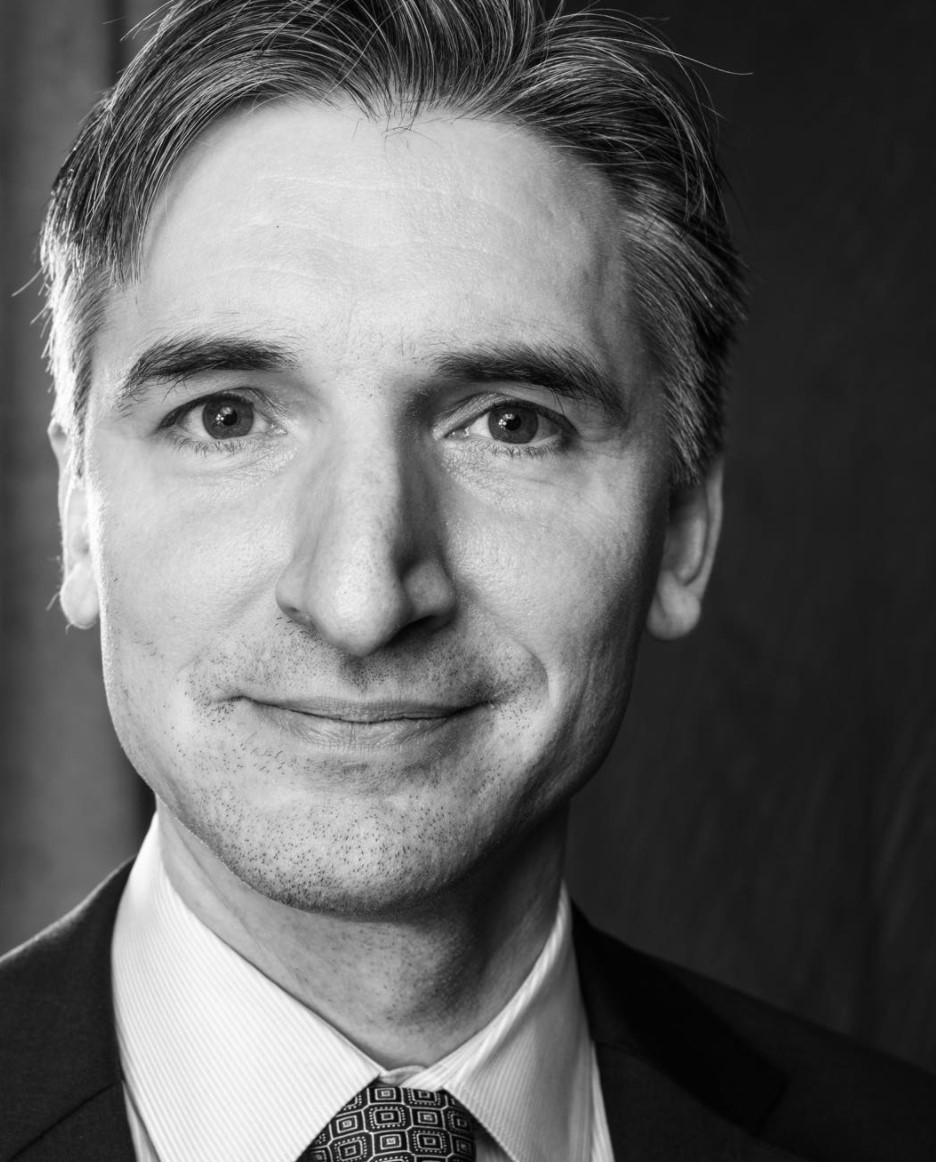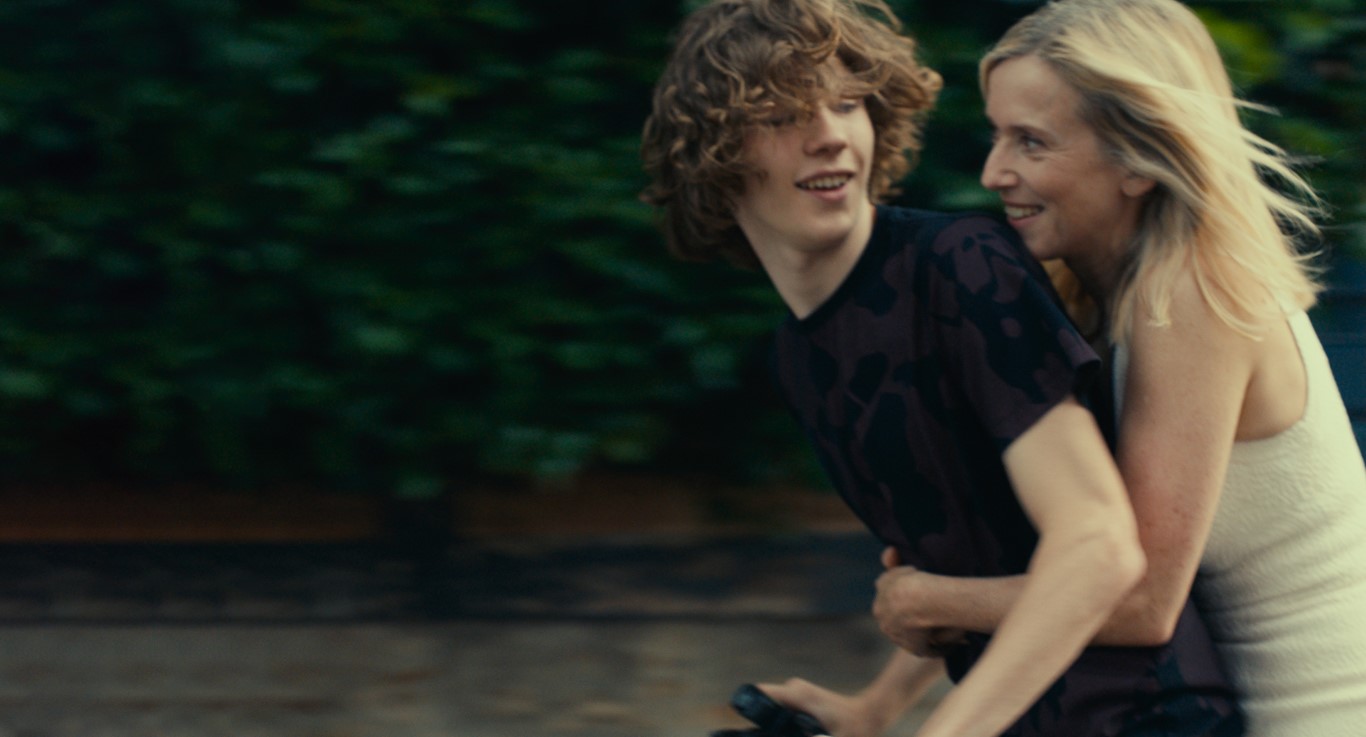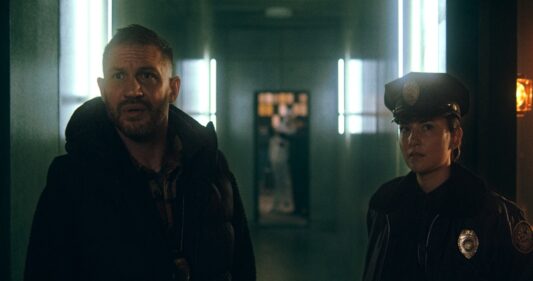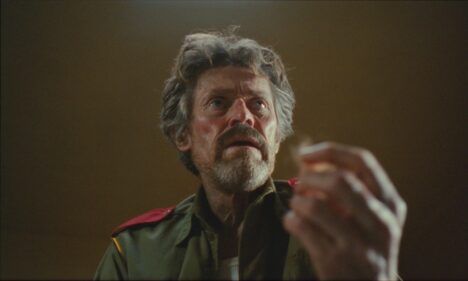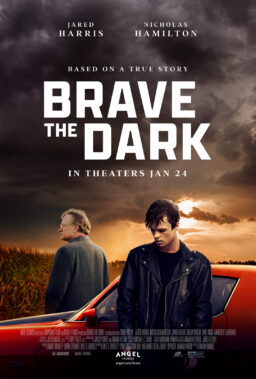As soon as Théo comes into Anne’s life, nothing will ever be the same for her. A successful, savvy middle-aged lawyer, Anne (Léa Drucker) is married to wealthy businessman Pierre (Olivier Rabourdin), the couple raising two young children they adopted. A gorgeous home, a loving husband, a fabulous existence—Anne seems to have everything. But when she meets Théo (Samuel Kircher), Pierre’s impudent, flirty 17-year-old son from a previous marriage, she succumbs to his advances, setting in motion a torrid affair that could destroy her perfectly manicured world. She can’t help herself—the sex is too good.
Premiering at Cannes in 2023, “Last Summer” is the first film from veteran French writer-director Catherine Breillat since 2013’s “Abuse of Weakness.” That’s the longest gap between movies in her directing career, but what’s clear is that Breillat, who turns 76 next month, remains consumed by questions of love, gender, and identity. Films like “Romance” and “Fat Girl” showed her pushing boundaries in terms of sex and violence, so by comparison, her latest’s portrait of a May-December affair might seem fairly tame. But that assumption misses Breillat’s bracingly non-judgemental attitude to the relationship—not to mention her refusal to pin down the psychology behind Anne’s reckless choice. And then there’s the not-insignificant matter of Breillat’s still-potent skill at delivering steamy sex scenes that reveal character as much as they raise an audience’s internal temperature.
Based on the recent Danish film “Queen of Hearts,” “Last Summer” opens in select theaters this weekend, providing this warm-weather season with its sexiest, most thoughtful examination of commitment, aging, and regret. Breillat was eager to discuss her film’s sensual pleasures when I interviewed her via Zoom earlier this week. She says she understands Anne’s willingness to destroy her life: “Dostoevsky illustrates it in so many beautiful novels—it’s a very human impulse,” Breillat notes. “I believe humans to be very complex—in the cinema I make, I’m interested in the nuance.”
Speaking through an interpreter, Breillat dove into that nuance, discussing why she doesn’t talk with her actors much on set, what she thinks of intimacy coordinators, and how she’d like to die. Also, she insists she’s not a provocateur, even if her oeuvre would suggest otherwise.
When “Last Summer” premiered at Cannes in 2023, some critics seemed disappointed that the film wasn’t as overtly provocative as your previous work. Did that reaction surprise you?
I’ve never been a provocateur. I’ve never made a scandal—I am a scandal, which is to say I’m an innocent scandal. I’m trying to show things that unveil something that some people are invested in but remain in denial about—something they don’t want to see on a cinema screen. That’s the reason that I’ve had a difficult and complicated career. It started as early as the age of 17 when I wrote a book [L’Homme Facile] that was forbidden to anybody below the age of 18. I was allowed to write the book, but I was forbidden from reading it myself. [laughs]
Times change, and societal norms shift. And yet, this impression of you being a provocateur remains.
It’s normal. Art is subversive and creates these disputes, whether it’s Victor Hugo or classical music or Elvis Pressley. Innovators [are] unruly at first and eventually dominate the cultural field. When I look at my films, from the very first to the last, I find that they don’t age—but, also, they have anticipated what seems to be the major topics of [our times], which is to do with desire and sexual identity. What does it mean to be perceived and assigned to one sex—what are the consequences of that in the rest of life?
[Before] I made “A Real Young Girl,” when I still hadn’t done anything at all, I had lunch with Roberto Rossellini, and I must have been a little bit prideful because he at some point snapped at me, annoyed, and said, “What do you think you are going to show that men’s films haven’t yet shown of young women?” And I answered that I would bring the gaze of shame because this was the shame that men created and left us to carry—that is exactly the reversal that people didn’t want to see, hence, why I was thought to be provoking.
We live in such a moralistic world—even the Danish film [“Queen of Hearts”] was a very moralistic film. My film has this open end so as not to judge the characters and also the spectator in the intimate space of their own judgment, which is their business and not mine.
Today, there is a lot of injunction on artists to replace politicians in making certain statements or [taking] certain stances. In contrast, I believe that cinema has a right to bad sentiments. Cinema has a right to film an assassin, or film a rapist. I’m an entomologist, and I don’t care to think about whether the corpse that I’m trying to film is real; it’s not. When I film murder, people don’t go around asking me whether I support murder—that’s out of the question. And, yet, I have been asked [if] I condone rape—which, obviously, it’s a crime. Cinema is an illusion, and so when I make a scene of intimacy, it’s a scene that is an illusion, and my job is to make the illusion as good as it can be with the help of the actors.
“Last Summer” keeps the rationale behind Anne’s attraction toward Théo a teasing mystery. Is that something you and Léa Drucker discussed? Did you view Anne’s desire for him as anything more than carnal?
I don’t talk to my actors on set, and I don’t discuss psychology in general. I believe that the choreography and the blocking communicate the characters’ psychology—it’s not a conversation for me to have with them.
In terms of what happens for Léa’s character, it was very important that there be no kind of predatorial seduction [on Anne’s part, as is the case in the Danish film]—it needed to be something that happened to her in a moment that she’s caught off guard. She sets up a pact with him—when she says, “I won’t tell your father [that you robbed his house] if you agree to integrate [with] the family,” it’s at that moment that she signs her death warrant as a happily faithful wife. In that scene, he still looks very childish, quite chubby—he’s not beautiful in any sexualizable way—but at some point, he looks up at her, and suddenly the camera comes in very close, his face gets thinner, and his features get sharper, and he looks at her like a woman. That gaze is what she’s eventually going to succumb to because it’s a gaze that is hard to resist—it carries the promise and the potential to make oneself younger again.

Much has been made of the fact that, in the film’s incredible sex scenes, the camera focuses closely on Anne’s face. Was that strategy something you knew you wanted before shooting? Or does it develop on set?
Everything is figured out on set. It’s through [the actors’] flesh that you have to find the beauty and the ecstasy that’s possible between them—not before. If there’s any forethought, it’s the night before in a state of panic. [laughs] But I always try to say what I’m going to do [in] a scene before I do it with my actors.
[Drucker] was worried because she had never in her whole career done an intimate scene and she’s 50 years old—she was scared that she might seem ridiculous [opposite] such a young body. I told her I was interested in what happens to the bodies as they make love, but not in the form of the bodies—[I was interested] in what is perceivable on the face, so [I would use] these closeups of the face. It is the nudity of the face that I’m interested in and the vulnerability and the intimacy of that.
She was relieved that [I] was somehow letting her off the hook, but I told her, “Don’t think that, it’s a lot harder and it’s a lot more intimate.” She came to realize that, indeed, whenever it comes to a wider shot where her body’s involved, the physical blocking of that and the choreography of that is so technical that it just becomes something else—but when the camera was close to her and she was trying to offer her face in this completely unguarded way, the camera felt like it was devouring her. That’s when she needed to really delve into all of her tools as an actress to be able to offer the performance that she did.
Many films hire intimacy coordinators for their sex scenes. “Last Summer” did not. What do you think of intimacy coordinators?
They’re an aberration. For one, they’re self-proclaimed—there’s no science to the diplomas that one holds to have that kind of authority. But, mostly, they contribute wrongly to the storytelling. Intimate scenes, where the stakes are to be able to bring the actors to the emotion so that the characters can come forth and relieve the actors of the burden of the scene, [this] is not something that the coordinators know how to do.
I think they’re completely obsolete, all the more so since they’re here to counter the fact that it’s very true that some producers and directors—men—have behaved horribly on set towards their actors. But the abuse never happens during the shooting—it happens when the cameras aren’t rolling, it happens outside when the intimacy coordinator is not there. So I think it’s just a moralistic screen to not be able to look at the fact that certain people just don’t know how to film a sex scene.
In my view, if there’s a sex scene in your film—if it’s a major scene—the director should be the one to direct it. If the director cannot direct it—if the scene doesn’t have to be in the film—there’s other ways to make films without a sex scene. In the time of McCarthyism, you can have Grace Kelly be kissed on the corner of the mouth and that does it just fine. I’m not for every film needing to have a very heated sex scene—if it’s not necessary, it’s not necessary.
I’m an artist and an author, so for me, the intimacy coordinators go against the creative authorship. In my whole career, I’ve been very conscious of trying to do everything I can to invent the kind of safeguards [for my actors] that, today, are more popular.

Younger viewers seem especially drawn to “Last Summer” because, in our modern era, sex has basically disappeared from movies.
This same youth is the one that otherwise has only access to anonymous pornography, which is a very different register and one in which the spectator is completely outside in a voyeuristic [way]. Whereas, what I’m trying to do is to carry emotion—especially if it is, for young people, emotions that are still unknown to them.
I think the issue with how sex has disappeared from cinema is that the [sex] scenes that people were upset by before were bad scenes. Very few people know how to actually bring out the grace of a moment like [that].
At the same time, “Last Summer” exalts in showing middle-aged and older bodies in different states of undress, which we also don’t see much of at the cinema. It seems that you’re trying to remind viewers that young people don’t have a monopoly on sex.
Love happens through sex, and some people manage to continue to love each other [as they get older] without the arrogance of youth. But whether within or without the relationship, there can be the return of novelty. I always think of Pasolini’s line [that] love is the thing that is always new—it is also always a fiction that one is telling oneself, and the act of love is also part of this fiction that one is telling oneself. But it needed to be accurate in the three [sex] scenes in the movie between Anne and Théo. Showing is not the same thing as seeing, and it’s not the same thing as thinking—the sex scenes that I stage are scenes that communicate thought. I think I’m one of the few who do that.
It’s been a decade since your last film. During that time, were you concerned you’d never get to make another movie?
I wasn’t scared—it was a fact, I was never going to make a film again. The French press had been mean with me beyond consideration, and I had at [that] point resigned myself that there was not going to be another [film]. I wasn’t writing even—in some ways, I was starting to accept the end of [that] life. But, now, I’m unresigned. I’m determined to die on a film set. [laughs]
